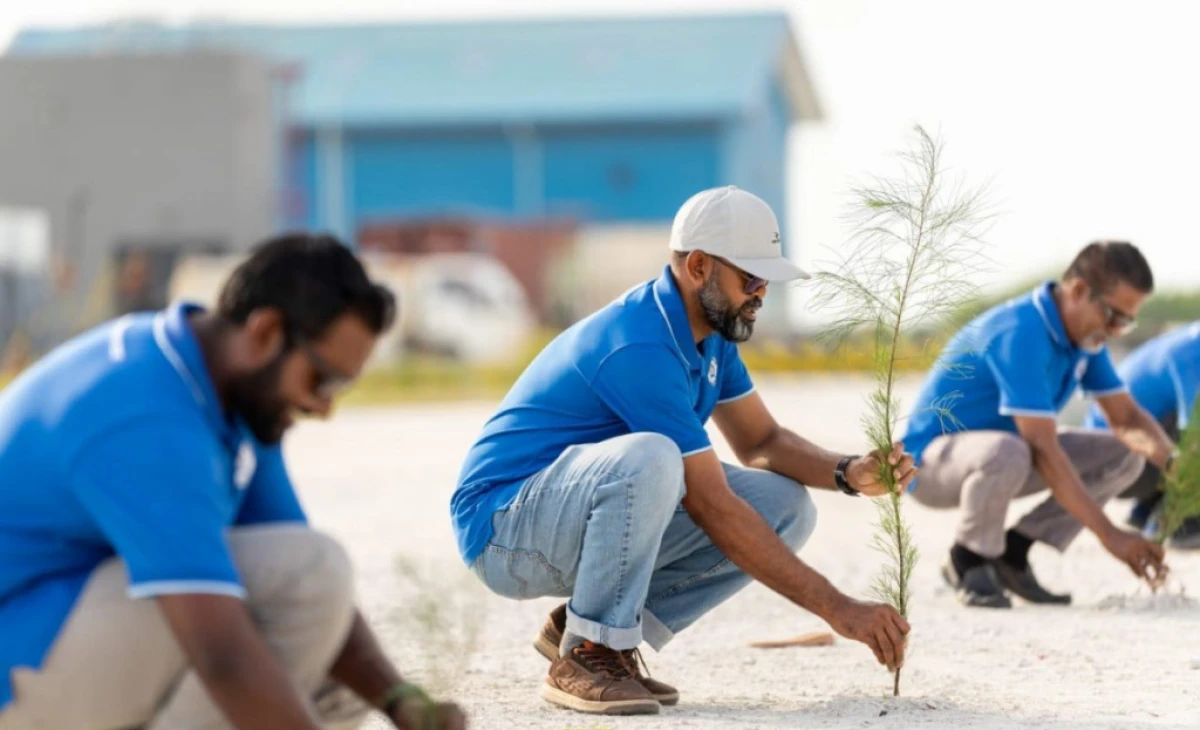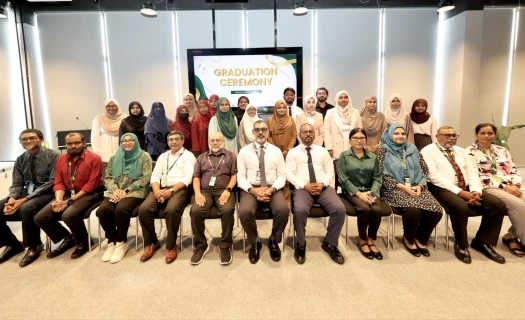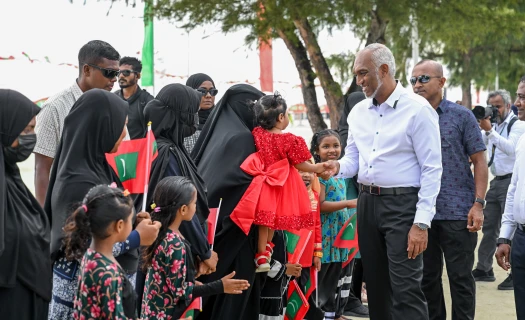Thu, 16 Oct 2025
|DHIVEHI
Planting for Resilience: Maldives’ Five-Million-Trees Programme
09 Oct 2025
|

MPL staff participating in the 5 Million trees planting programme --- Photo: Maldives Ports Limited
After assuming office on a platform centred on public health, prosperity and sustainable development, President Dr Mohamed Muizzu placed a flagship pledge at the heart of his agenda: a five-year programme to plant five million trees. Launched on 5 June 2024 on World Environment Day and embedded in the Presidential Manifesto, the programme was later reaffirmed by the President at COP28, positioning tree planting as both climate defence and a community-level investment.
The design prioritises Maldivian biodiversity and practical, everyday benefits. A curated list of 90 species are being cultivated, with a strong focus on reviving endangered native trees. Alongside those at risk, the plan includes fruit trees and other productive species, garden and shade trees to cool settlements, and medicinal plants that reflect long-standing local knowledge. The principle is straightforward: the right tree in the right place, so islands, towns and households gain overlapping benefits from the initiative.
Climate resilience is the core rationale. With an average ground level of about one metre above sea level, many communities face the steady pressure of coastal erosion and storm impacts. While hard defences such as concrete revetments may be necessary in specific locations, the Government frames living green belts as a sustainable, self-renewing line of defence. Root systems knit beach sands and soils, reducing scouring and stabilising shorelines; canopy and understorey help buffer salt spray and slow overland flow during rough weather. Trees also act as carbon sinks, absorbing atmospheric CO₂ and reinforcing national mitigation aims alongside adaptation.
Beyond the shoreline, the gains are urban. Expanding canopy cover lowers ambient and surface temperatures, eases heat stress, and improves air quality by capturing particulates. Greener streets, schoolyards, and clinic approaches create calmer, more restorative public spaces that support mental well-being. By prioritising shade near mosques, schools, transport nodes, and health facilities, everyday environments become more comfortable and inclusive for children, older people, and those with health vulnerabilities.
While the programme has attracted opposition criticism about feasibility and delivery, the Administration maintains its value is concrete and measurable: stronger shorelines, cooler and more liveable towns, better health outcomes, and improved food access. Implementation is being staged over five years, with species selections tailored to local conditions to maximise survival and impact. Seen in the round, The five million trees planning programme is not a numbers exercise but a long-horizon investment in sovereign resilience, leveraging nature’s own infrastructure to make the Maldives safer, healthier, and more liveable for generations to come.


Popular News







